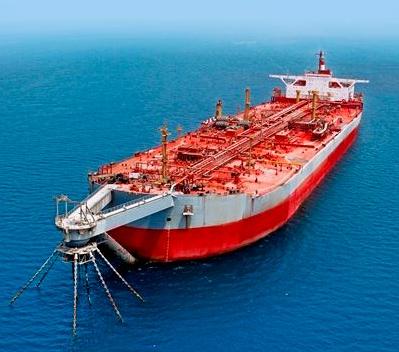
NEW YORK, New York, November 17, 2020 (ENS) – Technical experts must be granted immediate access to a rusting oil supertanker threatening an environmental calamity in the Red Sea, an independent United Nations expert is demanding. Abandoned five years ago when its engine room flooded with seawater, the leaking 44-year-old tanker FSO Safer still holds 1.1 million barrels of light crude oil.
“A UN technical team should be given all necessary means to assess the dilapidated tanker and conclusively avert the threat of a spill from the dilapidated tanker.” said Marcos Orellana, UN Special Rapporteur on Toxics and Human Rights.

The floating storage and offloading vessel FSO Safer was abandoned off the coast of Yemen’s key port of Hodeidah, which has been under the control of Houthi militants, one side in the civil conflict between the group formally known as Ansar Allah, and the internationally-recognized Yemeni government.
Official approval to access the vessel still has not been granted by Houthi authorities, although they have expressed their intent in principle to allow a UN team on board.
Since March 2015 when Iranian-backed Houthi rebels captured the area from the UN and Saudi-backed Yemeni government, the FSO Safer has remained moored seven kilometers outside the Red Sea port of Ras Isa. The vessel lies about 32 nautical miles north-northwest of Hodeidah, a hotly contested city where international aid is delivered to the Yemeni people, millions of whom are living in extreme hardship after five years of war.
Since then, the Safer has not been maintained or inspected, raising fears that explosive gases have built up in the vessel’s storage tanks. If an explosion happens, large quantities of crude oil could be released into the Red Sea, causing devastating environmental and humanitarian damage.
The area where the Safer is moored includes diverse marine ecosystems, including coral reefs.
“These reefs are not only intrinsically valuable systems of remarkable biodiversity and beauty; they are also major sources of revenue via tourism, and they contain a wealth of unique organisms and chemical compounds that could give rise to new and potentially revolutionary medicines, as well as other applications,” wrote Dr. David Soud, Rohini Ralby, and Dr. Ian Ralby on the Atlantic Council blog as far back as July 2019.
In conversation with the three authors, Dr. Maoz Fine of the Red Sea Transnational Research Center in Lausanne, Switzerland described those reefs as “a stockpile of resources for future generations.”
On March 19, six Arab countries wrote a joint letter to the UN Security Council urging the diplomats to convince Yemen’s Houthi rebels to allow UN inspectors access to the abandoned oil storage vessel.
In the letter sent by UN ambassadors from Djibouti, Egypt, Jordan, Saudi Arabia, Sudan and Yemen, the UN Security Council was warned that should a spill occur, the environmental impact would be four times greater than that seen during the 1989 Exxon Valdez grounding in Alaska, which spilled 10.8 million US gallons of crude oil. It is considered the worst oil spill worldwide in terms of damage to the environment.

Hudaydah, Yemen’s main port which handles the majority of the war-stricken country’s imports, would likely be closed for many months should an explosion or leak occur, the six UN ambassadors warn in their letter.
Some 1.7 million people who work in the fishing industry would be impacted and “about 40 percent of the agricultural land cultivated in Yemen would be covered with black clouds, which would result in the elimination of grains, fruits and vegetables,” the letter states.
The decaying tanker sprang a leak in late May. On September 24, Abdallah Y. Al-Mouallimi, Saudi Arabia’s ambassador to the United Nations, wrote in a letter that experts had observed, “a pipeline attached to the vessel is suspected to have been separated from the stabilizers holding it to the bottom and is now floating on the surface of the sea.”
The Houthis are proposing to sell the crude oil, estimated to be worth around $80 million, and use the funds to pay public salary payments, according to Almasdar Online, an independent Yemeni news organization.
The Yemeni government has rejected all attempts by the Houthis to do so and calls on the United Nations and the international community to put pressure on Houthis to allow the arrival of an international maintenance team, within the framework of an agreement reached between the two sides in Stockholm at the end of 2018.
Since the late 1980s, the Safer had been used as a storage vessel for oil and now threatens Yemen and the Red Sea with ecological catastrophe warns Orellana. “If this ship were to break up, a spill could decimate livelihoods of local coastal communities, biodiversity in the region, and heavily impact shipping routes in the Red Sea,” he said.

“It is vital that a UN technical team be permitted to board the FSO Safer if we are to have any hope of preventing the threat of a spill that could be four times worse than the historic Exxon Valdez spill in Alaska, in 1989,” he urged.
Citing the devastating explosion at the port of Beirut in Lebanon last August, Orellana asked, “Has the world learned nothing? Surely the dangers of mishandling hazardous substances are now evident.”
Although the Government of Yemen and Houthi authorities formally requested UN assistance with the Safer tanker in March 2018, more than two years on, the team has not been deployed because the necessary approvals have not yet been granted.
“This is a tragedy in the making and it must be prevented at all costs from hitting the people of Yemen,” Orellana said. “They have suffered enough.”
Special Rapporteurs like Orellana are appointed by the Geneva-based UN Human Rights Council to examine and report back on a specific human rights theme or a country situation. The positions are honorary, and the experts are not UN staff, nor are they paid for their work.
China has offered to help resolve the difficult situation. China’s Foreign Minister Wang Yi confirmed on October 13 that his country will play “a positive and constructive role in the UN Security Council to reach an appropriate proposal for resolving the conflict” between the government and the Houthi militia holding the dangerously decaying oil tanker.
Copyright Environment News Service (ENS) 2020. All rights reserved.
© 2020, Environment News Service. All rights reserved. Content may be quoted only with proper attribution and a direct link to the original article. Full reproduction is prohibited.



